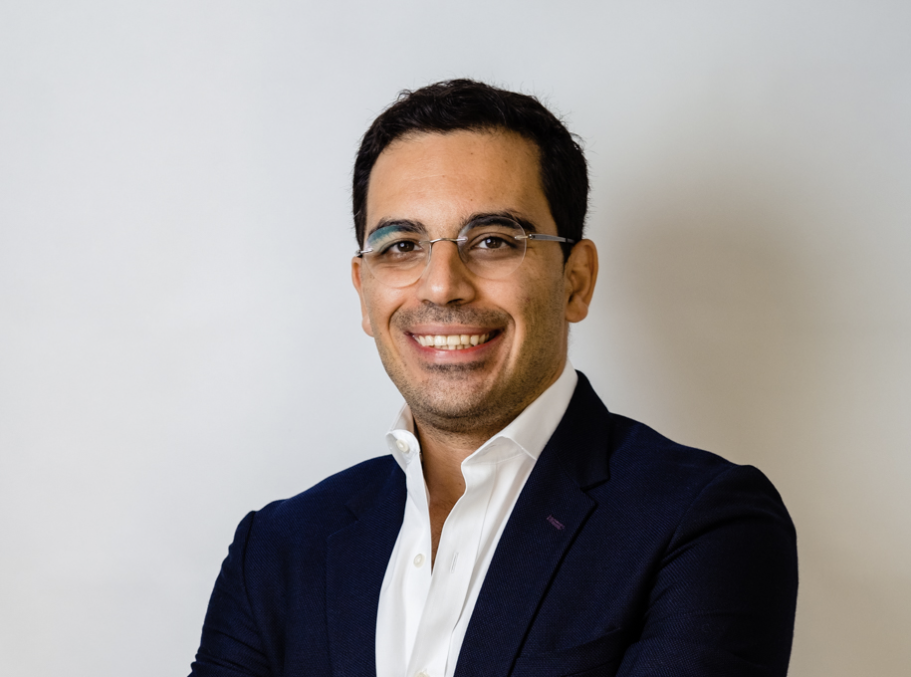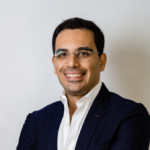Nuwa Capital navigates evolving Mideast investment landscape
Nuwa Managing Partner Khaled Talhouni looks at Gulf markets as a venture capital investor with one foot in Dubai and the other in Riyadh

Khaled Talhouni, Managing Partner of Nuwa Capital
Khaled Talhouni, Managing Partner of Nuwa Capital, says the recent proliferation of tech IPOs in the Gulf demonstrates that a “window is opening” for investors on stock exchanges in the UAE, Saudi Arabia and some of their neighbors.
Talhouni, 39, has a broad view of developments in regional finance, having opened offices in both Dubai and Riyadh for the venture capital firm, which manages $100 million in assets.
After attending college at Duke University in the U.S., Talhouni returned to the UAE for a job at Dubai International Capital, where he worked on the region’s first seed capital fund. He directed investments and strategy at twofour54 in Abu Dhabi and went on to become a Managing Partner at Wamda Capital. He started Nuwa in 2020.
Nuwa’s backers include Saudi Arabia’s Al Faisaliah Group, Abu Dhabi’s Mubadala Investment Co., Jada Fund of Funds and the Dubai Future District Fund. Among its 30 portfolio companies are Calo, a Bahrain-based meal planning start-up; Zest Equity, an online platform for managing venture capital investments; and Raqamyah, a Saudi crowdfunding platform.
The interview has been edited for length and clarity.
What are the major trends you see these days among investors in Middle East businesses?
I think with what’s going on in Saudi Arabia with a lot of very successful IPOs having happened in the past 24 months – particularly but not necessarily in tech, but across the board – we are seeing huge interest in participating in late-stage tech or late-stage, pre-IPO types of deals. That is because investors are seeing how there is a quick return on the back of that.
Also in the UAE, there is the Talabat deal coming up soon as well. So IPOs seem to be the hottest topic in town. I would say that is kind of moving in a big way.
One thing you see a lot more are direct deals, a lot more, so you do see people much more interested in going direct, as opposed to funds. You do see an interest in profitability. I would say that’s kind of increasingly of interest.
As we head into 2025, do you see further new companies being founded, or do you see more acquisitions than founding opportunities?
I think a couple of things are going to happen. First, I think funding is going to pick up because a lot of people are coming into some new dry powders. Some new funds are closing so things are moving. Then those who are sitting on the side have some deployment pressure that they need to deploy.
Secondly, I think a lot of early-stage companies, as funding has dried up relative to what it was in 2020-2021, [are going to be acquired]. We are going to see a lot of mid-tier companies and startups start consolidating into larger ones. So there is a lot of consolidation. More “aqua” (acquisition) hires. So bigger tech companies buying up talent or buying companies, or aqua hiring, or merging with companies that are smaller than them, that basically augment their offering, or add to their existing offering.
In terms of founding companies, that trend is secular. So that trend is continuing no matter what. So you see more and more every year, more companies being founded, regardless of what’s going on in the capital market.
Do we foresee a market correction where only the best companies will survive and move on to series A and beyond?
That’s the natural state of affairs. It should be like that. The unusual period was those couple of years in 2020, 2021, 2022, when everything was getting funded all the time. That’s unusual, but I think the natural [way that things] occur is actually, the majority of companies don’t survive going from Series A to Series B.
We are seeing movement within the IPO space while, at the same time, smaller businesses are struggling. What’s going on in the market?
There is a slowdown, a little bit of a consumer slowdown, particularly in Saudi a little bit. That’s definitely kind of happening in some small way. I think there’s also some liquidity constraints. So that’s definitely happening overall. I think it is very sector-specific.
However, consumer spend overall is being stretched. Which is why, on the other hand, companies, in BNPL (Buy-now-pay-later) and consumer credit seem to be doing so well. So they are really growing very, very aggressively. It is a little bit of a tale of specificities depending on which segment you’re in, you’re having a very different reality.
How has the wave of IPOs and exits shaped the current venture capital environment within the region? What do you think is going to happen in the next coming years?
So on the IPO front, it is extremely positive. I don’t know if you remember this, this whole route was not open. You know, as early as three, four years ago, there were no tech IPOs in the region, and there are very few IPOs overall. Right? Like, it was not a very vibrant capital market generally. So I think the fact that this window is opening, and there is demand, and there’s regulatory reform, and there’s opening up, especially on the Tadawul exchange in Saudi but even on the DFM in Dubai and ADX in Abu Dhabi, I think is extremely positive.
So that’s kind of spurring all kinds of more activity in the space to create validation that you can exit your startup through an IPO, which is typically, if you look at in other developed markets, it’s not the main way companies exit, but it’s not the majority of how startups exit, but it’s where the largest exit has happened. That had not really been open to our region before. And now this opening up really kind of creates some ability, some exit paths for startups at the larger base.
How does Nuwa Capital see the whole startup ecosystem moving forward? What role do you play in this within the region?
We see that the sovereign system is maturing. We do still think that there is still a huge room for more and more companies, for more and more companies to get funded, and more capital to throw on the startup ecosystem. I think there are probably too many individual VCs. So I think it’s a bit fragmented, and I can see that the market is also consolidating and or kind of getting a bit more concentrated, with the larger firms and the more established firms getting disproportionate amounts of the capital in the long run.
As for us, we are very keen on continuing on our mission, which is to kind of really invest in early-stage companies, impact the very best founders, and grow our business on the back of that. We have some companies that are beginning to mature within our portfolio. So we are hoping to position for exit in the coming two to three years. But then we also have a very young portfolio as well, so we will see how that kind of evolves over the coming years.









